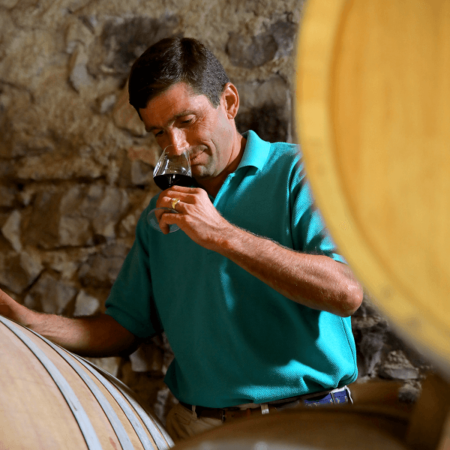
Château de Roux in Bragassargues was built in 1670 by Jacques d’Aldebert, Seigneur of Roux and Bragassargues. Domaine de Roux “tells the story of a family,” says current owner Hubert de Morogues. “It has been handed down from generation to generation since its creation, over 4 centuries ago.” Every wine made here is a tribute to the Domaine’s history.

The Vignes de l’Arque estate, situated in Baron in the Gard department, was founded in 1994 by Pierre Fabre and Luc Rouveyrolles, two vignerons whose aim was to protect and maintain the winegrowing heritage passed down to them across 7 generations. Initially, the pair sent their grapes to the local cooperative. But they soon found themselves yearning to make their own wine, and set out to establish their own winery. Nearly 28 years later, Pierre’s sons Patrick and Arnaud Fabre, together with the Rouveyrolles family, continue to keep this exciting venture alive.

The Mas des Volques estate dates back to the 1930s, when current owner Nicolas Souchon’s great-grandfather bought this vineyard property located in the village of Aigremont. The area is steeped in history, and the name refers to a Gallic tribe, the Volcae Arecomici, traces of whose dwellings were discovered in the nearby vineyards.
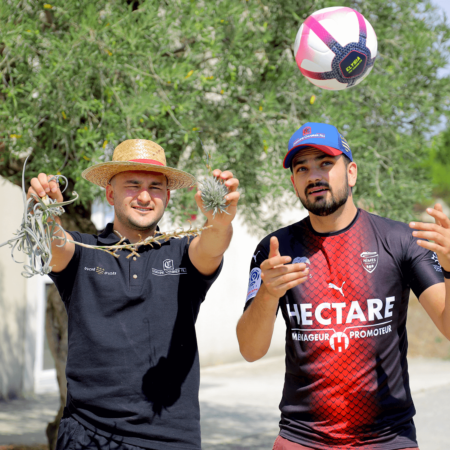
The story of Domaine Chabrier goes back to 1925, when Louis Chabrier acquired 3.5 hectares of vines in the village of Bourdic; today, the Domaine’s vineyards span 70 hectares. In 1952, the estate was taken over by Louis’ sons. At that time, the grapes were delivered to a cooperative winery, and the first mechanised processes were being introduced. In 1988, they handed the baton to the third generation of Chabriers, Christophe and Patrick. Both were passionate about vine and wine; they built their own winery on the estate and became independent winemakers in 1998.

Cave de Durfort in Durfort-et-Saint-Martin-de-Sossenac was founded in 1963, and is the Gard Department’s youngest winery, with 80 cooperative members and six permanent employees. It lies close to the Cévennes, in naturally cool conditions reflected skilfully in its wines: a stunning terroir which the Cave is proud to showcase.
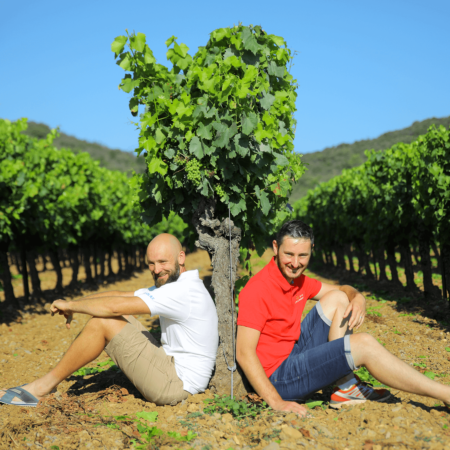
Domaine Le Sollier lies in the village of Monoblet in the foothills of the Cévennes National Park, with the twin Jumelles de Monoblet peaks rising up in the background. The Olivier family have been looking after this little corner of paradise since 1947.
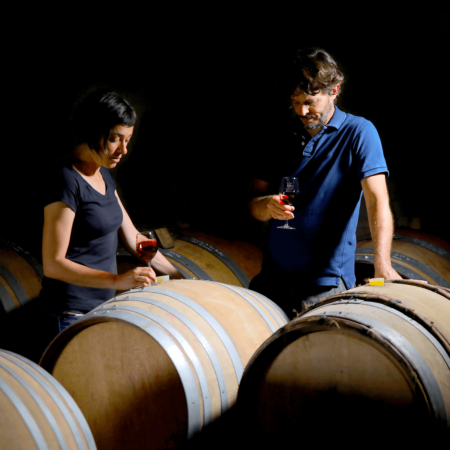
Marie-Hélène Veyrunes and Thomas Faure have always been passionate about vine and wine, and worked for many years at Domaine Les Lys in Blauzac: they loved the land and surrounding countryside, and cared deeply about the estate’s future.
In 2016, the Domaine’s managing partners separated, and the couple had a unique opportunity to take over the estate. They threw themselves wholeheartedly into their new venture, seeking to make a wine that reflected their personalities.
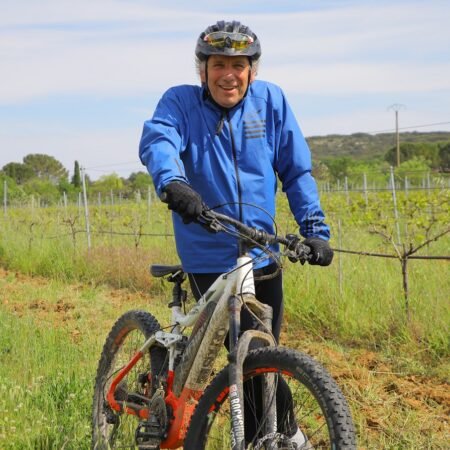
Almost 4 generations of the Reynaud family have been united in their passion for vine and wine. Luc Reynaud currently heads up the family estate located in Saint Siffret, the village where he grew up. Luc’s love of winemaking developed under the watchful eye of his grandfather, a rather unusual winemaker whose second great love was books. Domaine Reynaud’s emblem is a quill pen, chosen in his honour.
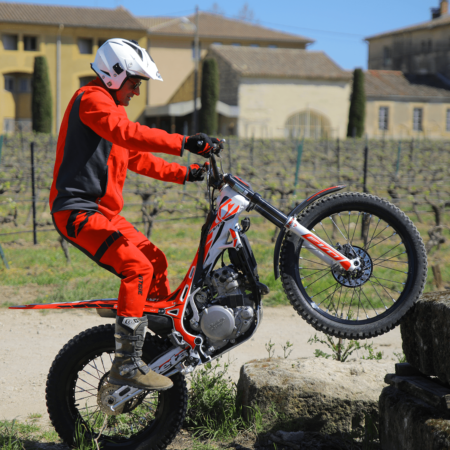
In 1925, Pierre and Marie Blanc moved from their native Lozère to settle in Uzès, and bought a farmhouse which was to become Domaine Saint Firmin. Their son Emile went on to extend the Domaine and its vineyards, and today Saint Firmin vines grow across many hectares of Uzès’s sunny hillsides.
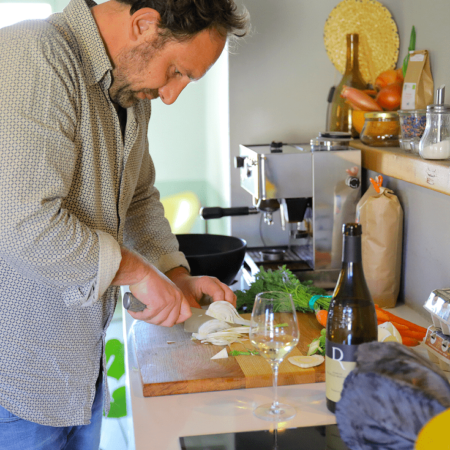
Domaine Deleuze-Rochetin in Arpaillargues is almost 200 years old. In 2006, Catherine Cathonet took over this family-run estate, and commissioned the building of a new, privately owned winery.
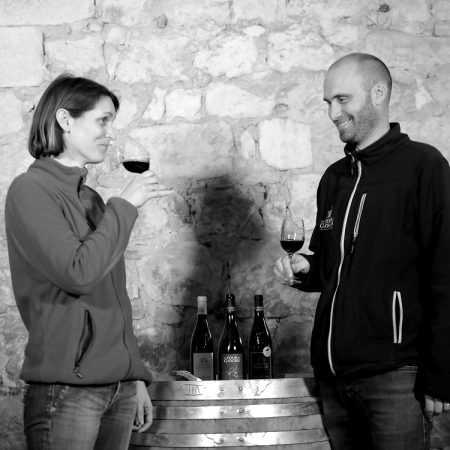
In the village of Saint-Chaptes in the Gard stands a former Commanderie of the Knights Templar, built in 1212. It’s now home to La Tour de Gâtigne, a wine estate run by the Guibal family since 1936, where the fourth generation is already hard at work.
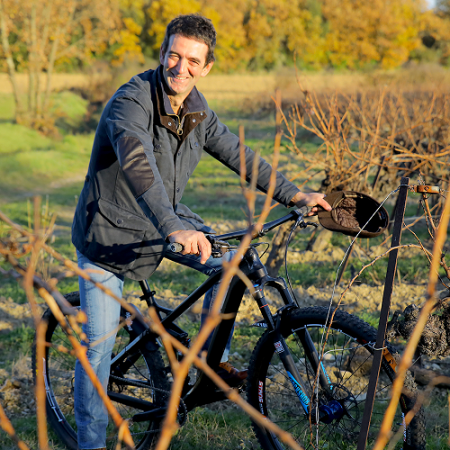
After 20 years as a schoolteacher, Emmanuel Senthille moved back to work on his family’s wine estate in St Jean de Crieulon in the foothills of the Cévennes. He joined his father initially, delivering his grapes to the local cooperative, but went on to set up his own winery in 2018, sourcing grapes from 4 hectares of vines. It was his childhood dream come true.
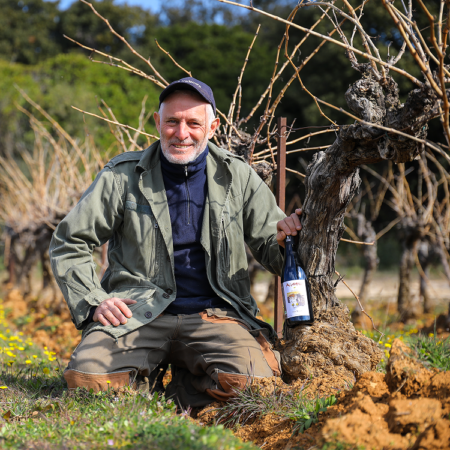
Serge Scherrer always wanted to work in the wine world; but life dealt him a different hand, and he ended up working as a postman for 35 years. Then in May 2007, his winegrowing dreams finally came true when he acquired a plot of old vines (50% Cinsault, 50% Grenache) in the village of Vallabrix, saving it from being grubbed up. And that was the start of Domaine Agarrus.
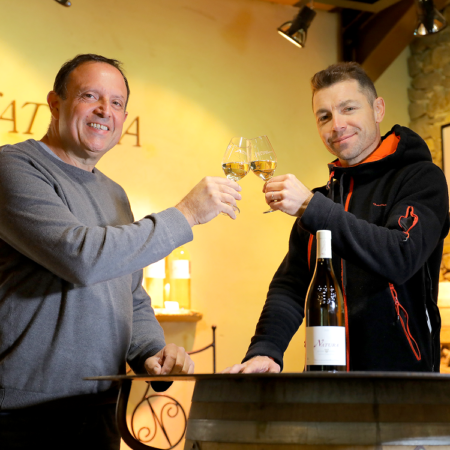
Domaine Natura, located just north of Uzès in St Laurent la Vernède, was established in 2000. In 2004, a new winery was added so the entire winemaking process could be overseen, and quality assured from earth to glass. The estate is headed up by two-man team Laurent and Julien: Laurent looks after the vineyards and the commercial side of the business, while Julien is in charge of winemaking and bottling. Both enjoy the good things in life, and are keen to pass on their love of wine and winemaking, along with the values of warmth and companionship that come with sharing a bottle of good wine.
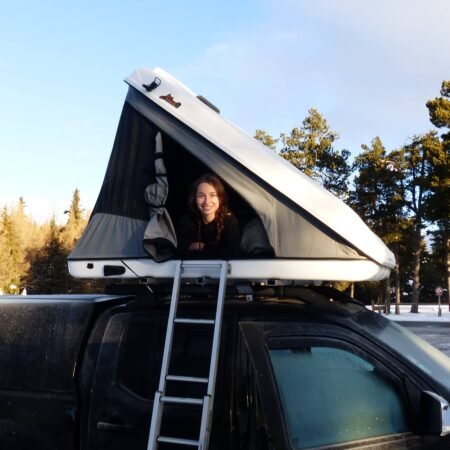
The historic Collines du Bourdic cooperative winery was established in 1928 in the village of Bourdic in the Gard department, its location by the railway line proving ideal for transporting wine throughout France. Now, almost a century later, some 100 winegrowers across 1,800 hectares of vineyard in the Uzège region follow in the footsteps of their forebears, driven by the same passion and energy, and committed to the universal cooperative values of unity, equity and responsibility. Wines are made in a high-performance, high-precision facility which combines the traditional with the modern.